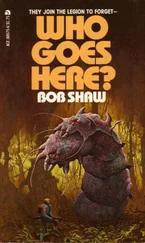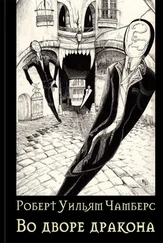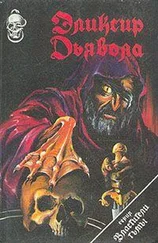Роберт Чамберс - Who Goes There!
Здесь есть возможность читать онлайн «Роберт Чамберс - Who Goes There!» весь текст электронной книги совершенно бесплатно (целиком полную версию без сокращений). В некоторых случаях можно слушать аудио, скачать через торрент в формате fb2 и присутствует краткое содержание. Год выпуска: 2014, Издательство: epubBooks Classics, Жанр: Историческая проза, на английском языке. Описание произведения, (предисловие) а так же отзывы посетителей доступны на портале библиотеки ЛибКат.
- Название:Who Goes There!
- Автор:
- Издательство:epubBooks Classics
- Жанр:
- Год:2014
- ISBN:нет данных
- Рейтинг книги:4 / 5. Голосов: 1
-
Избранное:Добавить в избранное
- Отзывы:
-
Ваша оценка:
- 80
- 1
- 2
- 3
- 4
- 5
Who Goes There!: краткое содержание, описание и аннотация
Предлагаем к чтению аннотацию, описание, краткое содержание или предисловие (зависит от того, что написал сам автор книги «Who Goes There!»). Если вы не нашли необходимую информацию о книге — напишите в комментариях, мы постараемся отыскать её.
Who Goes There! — читать онлайн бесплатно полную книгу (весь текст) целиком
Ниже представлен текст книги, разбитый по страницам. Система сохранения места последней прочитанной страницы, позволяет с удобством читать онлайн бесплатно книгу «Who Goes There!», без необходимости каждый раз заново искать на чём Вы остановились. Поставьте закладку, и сможете в любой момент перейти на страницу, на которой закончили чтение.
Интервал:
Закладка:
"God!" he whispered. And he had it.
Over the sofa was hanging a map of the British Isles and of the Western coast of Europe. Dotted lines indicated the course taken by the Holland Line steamers. He reached up, unhooked it, looked at it, then at the drawing in his hand.
Then he detached half of the thin sheet of paper on which the sketch was drawn and laid it over the sketch. Being translucent to the verge of transparency, he could see the drawing beneath the thin sheet covering it.
Then, with his pencil, he steadily traced the outlines of the trees.
When he had done this and had removed the sketch from beneath his tracing–paper he had what he expected—an outline of the British Isles, the Hebrides, Orkneys, Shetlands; part of the coast of Norway, the French, Belgian and Dutch coast. Heligoland, and the German coast at Cuxhaven and Wilhelmshaven.
From the map of the steamship company he carefully filled in boundaries and a few principal towns, then placing his outline drawing over the sketch of the trees he drew a dotted line following exactly the flight of the little birds.
Where that flight terminated he made an arrow, then turned his eyes on the steamer map to find out where that arrow's point rested.
And there on the Irish coast he saw the name Lough Swilly!
It was the last link!—the last but one.
"A Fleet Lough Swilly. Hecht (Pike) follow birds."
A pike, with little pike following her, was to follow the flight of the birds—the dotted line on his outline map. The dotted line curved up out of Cuxhaven, around the Orkneys and Hebrides and into Lough Swilly— where there was a fleet !
Out of Cuxhaven— Cuxhaven! where lay the German submarines!—A pike, and young! A parent ship and submarines!
The last link was forged; the chain complete—not quite—not entirely. The Japanese dancing girl? And under the number of the sketch, 3,—were three symbols. They were junks with latten sails.
Perhaps there were three Japanese battleships at Lough Swilly. It didn't matter; the chain was complete enough for him.
Chapter XI
Strategy
As he rose from the sofa, stretching his arms to ease his cramped muscles, Guild became conscious that he was very tired.
He had had little sleep the night before and none at all this night. He glanced at his watch; it was four o'clock in the morning. He went to the port, unscrewed it, and looked out into pitch darkness. There was not a light to be seen on the sea, no flare from any headland, no spark which might indicate a lighthouse, not a star overhead, not a sparkle save for the splintered reflection of the vessel's own lights running over the water alongside, through which foaming, curling waves raced and fled away into the black obscurity astern.
He turned and looked gravely at Karen. The girl still lay unstirring among the pillows on the sofa. One arm covered her head as though to shield it from some blow.
He bent beside her, listening to her breathing. It was quiet and regular, and on her cheek was a flush like the delicate colour of a sleeping child.
He had no mind to disturb her, yet he could not make her more comfortable without awaking her.
All he dared do was to unbutton her spats very cautiously, and slip off the little brown suede shoes.
Over her he laid the blankets from the bed, lightly, then opened wide the port.
His own toilet for the night was even simpler; he folded together the batch of damning papers, originals, his own notes, the forged passports, strapped them with an elastic band, buttoned them inside his breast pocket, reached over and extinguished the electric globe, and, fully dressed, lay down on the stripped bed in darkness.
They had been traveling sixteen hours. Allowing for their detention by the ill–omened Wyvern , they should dock at Amsterdam in five or six hours more.
He tried to sleep; but his nerves were very much alive and his excited brain refused to subscribe to the body's fatigue.
All that had happened since he first saw Karen Girard he now went over and over in his mind in spite of himself. He strove to stop thinking, and could not; and sometimes the lurid horror of the Wyvern possessed him with all its appalling details made plain to his imagination—details not visible from the liner's decks, yet perhaps the more ghastly because hidden by distance and by the infernal glare that fringed the doomed ship like a very nimbus from hell itself.
This obsessed him, and the villainous information which he had wrested from the papers which this young girl had been carrying—information amply sufficient to convict her and to make inevitable the military execution of the man Grätz and the grinning chauffeur, Bush.
And if the wretched maid, Anna, had been arrested with papers similar to these on her person, her case, too, was hopeless. Because the very existence of England depended upon extinguishing forever people who dealt in secret information like that which lay folded and buttoned under his belted coat of tweed.
He knew it, knew what his fate must have been had the satchel been searched on Fresh Wharf—knew what Karen's fate must have been, also, surely, surely!
And had those papers been taken aboard the Wyvern it had not been very long before the simplicity of the cipher had been discovered by anybody trained in code work.
For, in spite of its surface complexity, the cipher was a singularly simple one, even a stupid code, based on simple principles long known and understood in all of their hundreds of variations.
And all such ciphers, granted time and patience, could be solved by the same basic principles. The only function of that kind of code was to so multiply its intricacies and variations that, with a time limit for delivery understood, measures could be taken at the other end to minimize the effect of discovery, the elapsing of the time limit serving as an automatic warning that message or messenger were under forcible detention within the enemy's lines.
Yes, it had been a stupid cipher, and an easy one.
A trained man would have solved it in half the time he had required.
Nothing about the message remained really obscure except the Japanese dancing girl playing with her butterfly and fan, and the lack of information concerning the "fleet" at anchor or cruising near "Lough Swilly" on the Irish coast.
As far as the fleet was concerned, Guild was very confident that he understood. The whereabouts of the British battleship fleet was not known, had been carefully guarded. Without a doubt Lough Swilly was its rendezvous; and the German spy system in England had discovered it and was sending the information to Berlin with a suggestion that submarines "follow the birds," i. e., take that dotted course around the northern Scottish coast, slip south into Lough Swilly, and attack the first line of battle squadron where it had been supposed to lurk in safety, awaiting its call to action. That was as clear as daylight, but the Japanese figure he could not understand.
He was utterly unable to sleep. After an hour's staring into the darkness he rose cautiously, opened the stateroom door and stepped into the lighted corridor.
Here he lighted a cigarette against regulations and began to pace up and down.
Presently the sharp nose of a steward detected the aroma of tobacco, and he came prowling into the corridor.
So Guild nodded and tossed the cigarette out of the open port at the end of the corridor.
"We ought to dock by nine," he said.
"About nine, sir."
"We're lucky to have run afoul of nothing resembling a mine."
"God, sir! Wasn't it awful about the Wyvern ! I expect some passenger steamer will get it yet. Mines by the hundreds are coming ashore on the coast of Holland."
Читать дальшеИнтервал:
Закладка:
Похожие книги на «Who Goes There!»
Представляем Вашему вниманию похожие книги на «Who Goes There!» списком для выбора. Мы отобрали схожую по названию и смыслу литературу в надежде предоставить читателям больше вариантов отыскать новые, интересные, ещё непрочитанные произведения.
Обсуждение, отзывы о книге «Who Goes There!» и просто собственные мнения читателей. Оставьте ваши комментарии, напишите, что Вы думаете о произведении, его смысле или главных героях. Укажите что конкретно понравилось, а что нет, и почему Вы так считаете.












